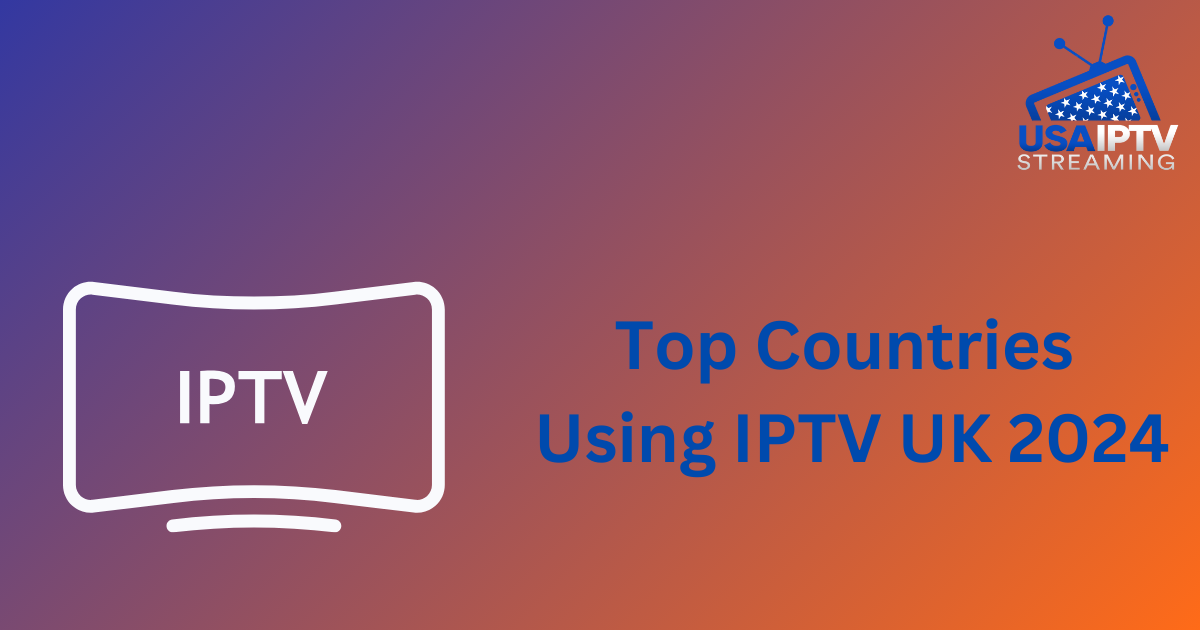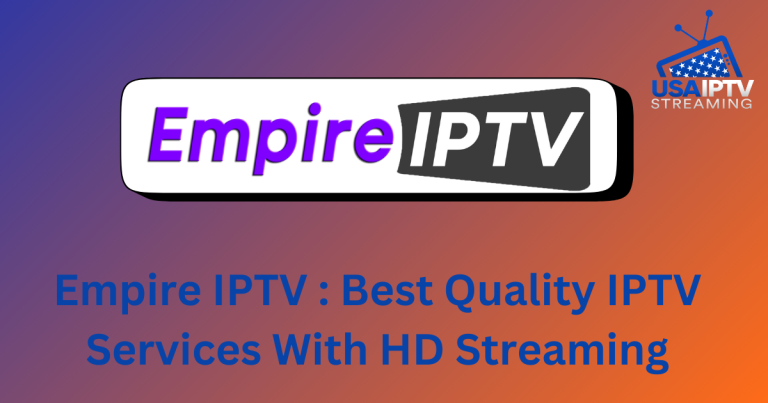Top Countries Using IPTV UK 2024
IPTV (Internet Protocol Television) has revolutionized how we consume media, offering a seamless and immersive viewing experience. With its crystal-clear picture quality and on-demand entertainment, IPTV has captivated audiences worldwide.
Leading the Way: Top Countries Using IPTV
Which countries are at the forefront of this next-generation TV technology? Our analysis uncovers the leading nations where IPTV adoption is skyrocketing, heralding a new era of entertainment enthusiasts.
From bustling cities to remote regions, the demand for IPTV is steadily increasing. We will explore the factors driving this growth and how these countries are leveraging the Best IPTV UK Providers to transform their television landscapes.
Join us on a fascinating journey as we explore the top countries embracing IPTV, where cutting-edge technology meets an insatiable appetite for captivating content.
Understanding IPTV’s Rapid Growth
In recent years, IPTV has experienced remarkable growth, revolutionizing the television industry. This innovative approach delivers television programming over internet networks, bypassing traditional broadcasting methods. The widespread availability of high-speed internet has paved the way for IPTV’s popularity, enabling users to enjoy uninterrupted streaming and on-demand access to their favorite shows and movies.
One of IPTV’s key advantages is its ability to offer personalized and interactive content, which has resonated with audiences globally, driving adoption and shifting consumer behavior.
The advent of smart TVs and connected devices has further accelerated IPTV’s expansion in the UK. These internet-enabled devices, often equipped with IPTV capabilities, have become a staple for consumers seeking a more immersive and convenient viewing experience. As a result, the IPTV industry has seen significant growth, with new players entering the market and established providers continuously enhancing their offerings.
Key Drivers of Global IPTV Adoption
Several factors have contributed to the global rise of IPTV usage. The increased availability and affordability of high-speed internet have made IPTV services more accessible to the general public, enabling users to stream high-definition content without buffering or disruptions.
Secondly, the growing demand for on-demand content has played a pivotal role in IPTV adoption. Traditional TV programming often restricts viewers to fixed schedules and limited content options. In contrast, IPTV offers an extensive library of movies, TV series, and live events available anytime, anywhere.
The proliferation of smartphones and tablets has also driven IPTV’s growth, allowing users to stream content on the go, enhancing convenience and portability.
Lastly, the widespread adoption of smart home technologies has created a conducive environment for IPTV. Smart home devices, such as voice-controlled assistants and home automation systems, integrate seamlessly with IPTV services, enabling users to control their viewing experience through voice commands or smart home apps.
These factors, coupled with the inherent advantages of IPTV, have propelled its global adoption, marking a significant shift in the television industry.
Leading Countries in IPTV Usage
Let’s delve into the top countries where IPTV is thriving, reshaping the television landscape.
- United States: As one of the world’s largest media markets, the U.S. has embraced IPTV with open arms. With a tech-savvy population and robust internet infrastructure, American viewers have swiftly adopted IPTV services. Major providers like AT&T and Verizon have launched IPTV platforms offering diverse channels and on-demand content.
- South Korea: Renowned for its technological advancements, South Korea leads in IPTV adoption. With ultra-fast internet connections and a highly connected population, South Koreans enjoy seamless streaming and a plethora of IPTV options. Market leaders like KT Corporation and LG Uplus dominate, providing high-quality IPTV services.
- United Kingdom: The UK has witnessed a surge in IPTV usage in recent years. With a preference for on-demand content and a thriving entertainment industry, British audiences have turned to IPTV as their primary television choice. Providers such as Sky and BT Vision offer extensive IPTV packages catering to a wide range of interests.
- Brazil: As a major market in Latin America, Brazil has seen significant growth in IPTV usage. With a strong demand for entertainment and improved internet infrastructure, Brazilians are increasingly turning to IPTV for their daily content needs. Claro and Vivo have capitalized on this demand by offering compelling IPTV services.
- China: With its vast population and advanced internet infrastructure, China has emerged as a key player in the IPTV industry. Chinese viewers have embraced IPTV as a convenient and cost-effective alternative to traditional television. Leading providers like China Telecom and China Unicom offer a wide range of IPTV services.
These countries represent just a snapshot of the global IPTV landscape. Other nations, including Russia, Germany, India, and Japan, are also experiencing significant growth in IPTV adoption, contributing to the global transformation of the television industry.
Top IPTV Providers in Leading Countries
In the competitive IPTV market, several providers stand out for their exceptional services and diverse offerings. Let’s take a closer look at some of the top IPTV providers in the leading IPTV-using countries.
- AT&T (United States): AT&T TV, the company’s IPTV service, offers a wide range of channels, on-demand content, and innovative features. With a user-friendly interface and seamless integration with other AT&T services, AT&T TV provides American viewers with a comprehensive IPTV solution.
- KT Corporation (South Korea): KT Corporation’s IPTV service, Olleh TV, is widely regarded as one of the best in South Korea. Olleh TV offers an immersive and personalized viewing experience with high-quality streaming, customizable channel packages, and advanced features such as time-shifting and multi-screen viewing.
- Sky (United Kingdom): Sky’s IPTV service, Sky Q, has developed a loyal following in the UK. With its extensive channel lineup, on-demand content, and innovative features like voice control and personalized recommendations, Sky Q delivers a premium IPTV experience to British viewers.
- Claro (Brazil): Claro’s IPTV service, Claro TV, has gained popularity among Brazilian viewers. With its extensive channel lineup, on-demand content, and flexible subscription options, Claro TV caters to the entertainment needs of a diverse Brazilian audience.
- China Telecom (China): China Telecom’s IPTV service, BestTV, is a market leader in China. With a vast channel selection, on-demand content, and seamless integration with other telecom services, BestTV provides Chinese viewers with a comprehensive IPTV solution.
These providers have set the standard for excellence in IPTV, combining cutting-edge technology and engaging content to deliver an unparalleled viewing experience to their customers.
Challenges and Opportunities in the IPTV Market
While the IPTV industry holds immense potential, it is not without its challenges. One of the biggest concerns is piracy and content copyright violations. Since IPTV relies on internet streaming, the unauthorized distribution of copyrighted content remains a significant risk. Providers and regulatory bodies are continuously working to address this issue and ensure the protection of intellectual property.
Another challenge is the fragmentation of the IPTV market. With numerous providers offering different services, consumers may find it difficult to choose the one that best fits their needs. This fragmentation also poses challenges for content creators and distributors, who must navigate multiple platforms to reach their target audience.
Despite these challenges, the IPTV market presents ample opportunities. The growing demand for personalized and on-demand content allows providers to target specific audiences and offer tailored viewing experiences. Moreover, technological advancements such as 5G connectivity and virtual reality open new avenues for immersive IPTV experiences, expanding the potential of this innovative medium.
Tips for Choosing the Right IPTV Service
With so many IPTV options available, selecting the right one can be a daunting task. Here are some tips to help you make an informed decision:
- Assess Your Needs: Determine the type of content you enjoy and how you prefer to consume it. Consider factors such as channel selection, on-demand content, and additional features like DVR capabilities.
- Research Providers: Look for reputable providers with a track record of delivering high-quality IPTV services. Read customer reviews, compare pricing plans, and evaluate the features and channels offered by different providers.
- Consider Device Compatibility: Ensure that the IPTV service is compatible with your preferred devices, whether it’s a smart TV, streaming device, or mobile device.
- Evaluate Customer Support: A reliable and responsive customer support team is essential for a smooth IPTV experience. Look for providers that offer robust customer support and comprehensive troubleshooting resources.
- Test the Service: Many providers offer free trials or trial periods. Take advantage of these offers to test the service and assess its performance, user interface, and content selection before committing to a subscription.
By following these tips, you can find an IPTV provider that meets your needs and delivers an exceptional viewing experience.
Future Trends in IPTV Adoption
The future of IPTV is promising, with several key trends shaping its adoption and evolution.
- Enhanced Personalization: IPTV providers will continue to offer more personalized content recommendations based on individual viewer preferences. Advanced algorithms and machine learning will enable providers to deliver hyper-targeted content, creating a more tailored viewing experience.
- Seamless Integration with Smart Home Devices: IPTV will integrate seamlessly with smart home devices, allowing users to control their viewing experience through voice commands or smart home apps. This integration will enhance convenience and further blur the lines between traditional television and connected home environments.
- Expansion of 5G Connectivity: The rollout of 5G networks will significantly enhance the streaming quality and reliability of IPTV services, enabling faster data transfer and reducing latency. This will pave the way for new immersive experiences, such as augmented reality and virtual reality, within the IPTV ecosystem.
In conclusion, the IPTV industry is poised for continued growth and innovation, offering viewers a more personalized, convenient, and immersive entertainment experience. As technology advances and consumer preferences evolve, IPTV will play an increasingly central role in the future of television.








